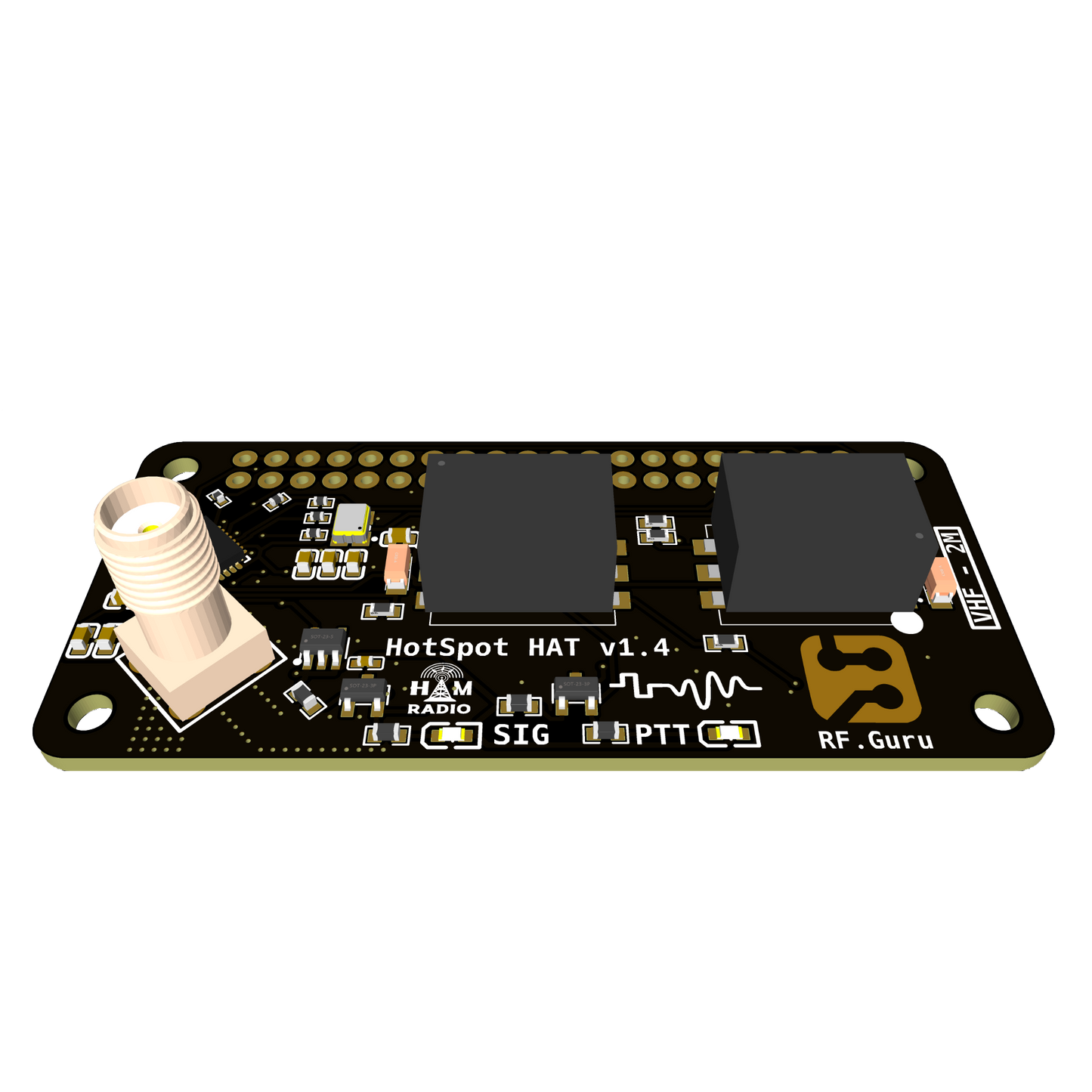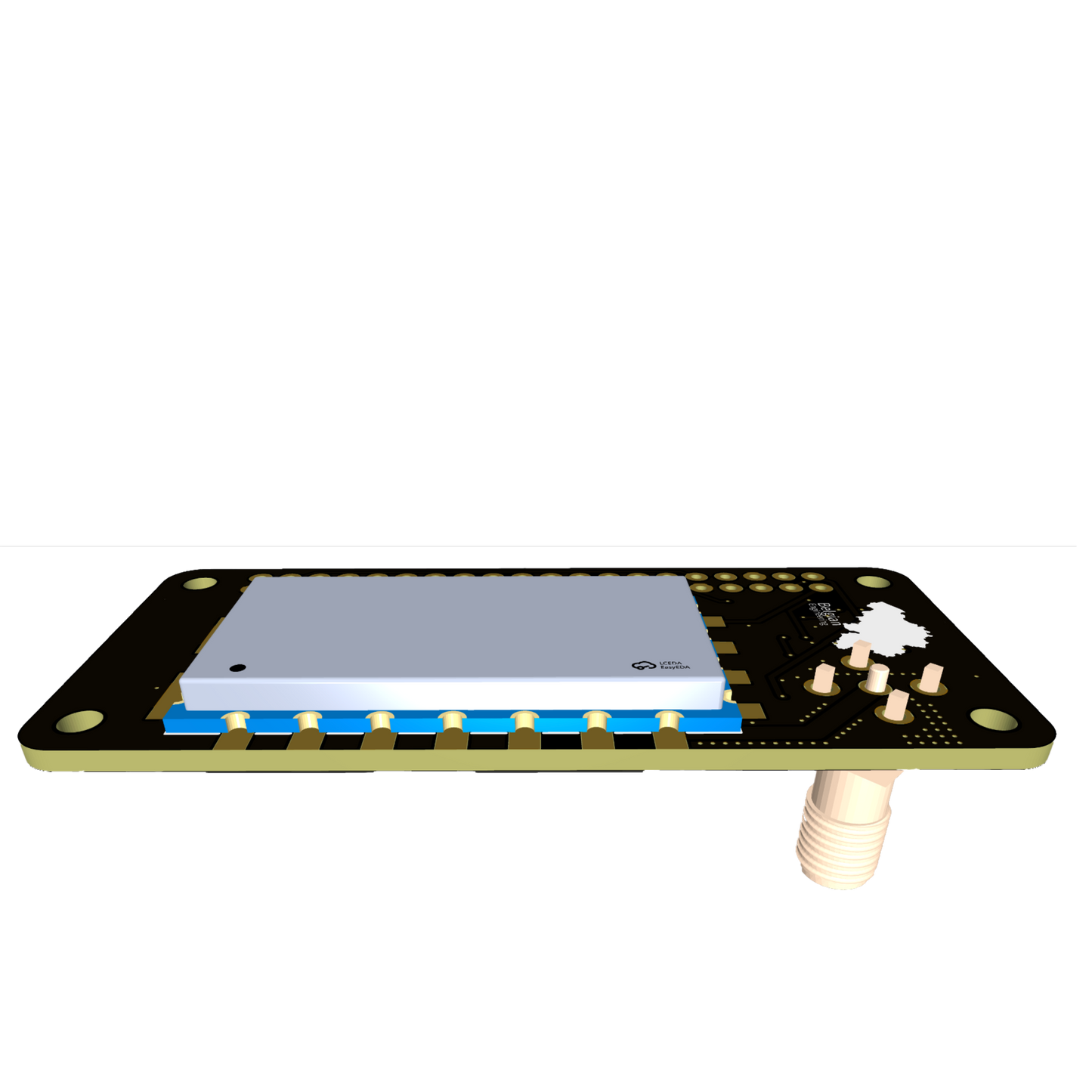RF Guru
2023-P-041-V | SVXLink Analog HotSPOT 2m VHF PCB
2023-P-041-V | SVXLink Analog HotSPOT 2m VHF PCB
Couldn't load pickup availability
Experience the power of the SVXLink Analog Hotspot, a cutting-edge HAT designed exclusively for the Raspberry Pi Zero.
Packed with a formidable VHF 2m band radio module, this versatile device is accompanied by a state-of-the-art DAC/ADC, enabling it to function flawlessly as an EchoLink/SVXLink analog hotspot.
What's more, with the combination of a remote SVXLink with AnalogBridge (DVSwitch), you gain access to digital networks, including the Brandmeister and OpenDMR network, unleashing a world of limitless possibilities.
Datasheet
- Raspberry PI Pin compatible
- PCB ENIG (Electroless Nickel Immersion Gold)
- VHF 2m band frequency: 134~174 MHz
- Tx and Rx frequency, Tx and Rx CTCSS, CDCSS can be set separately.
- Band width 12.5KHz / 25 KHz
- Output power 27dBm / 500mW
- RX Sensitivity:-124 dBm
- Adjustable RX en TX volume
- 1 ppm KDS TCXO crystal
- Wolfson WM8960 ADC/ 1W DAC 48kHz
- Signal/Tone Blue LED
- TX/PTT Blue LED
Power consumption in combination with a Raspberry PI Zero W
- Receive modus 220mA
- Transmit modus 370mA
Kit Components
While we offer the option to purchase pre-assembled devices for your convenience, kit assembly is fairly easy (only 3 parts to solder) !
Hotspot
- 1 x Rf.Guru PCB
- 1 x 40 Pin Header
- 1 x SMA socket
- 1 x VHF Radio module
Hotspot enclosure (optional)
- 1 x Enclosure Top Part
- 1 x Enclosure Bottom Part
- 1 x Frontplate
- 2 x LED cover
- 4 x standoff FtF 11mm
- 3 x standoffs MtF 8mm
- 7x 2.5M 6mm screws
Antenna
The RF 50 ohm output requires an antenna with a SWR (Standing Wave Ratio) of less than 4:1, which is considered reasonable. If you experience sound distortion, it could indicate that the antenna being used has a high SWR, leading to common-mode currents that may affect the RF chip. To test, use a 50-ohm dummy load (for UHF) and consider using a more suitable antenna. We recommend and sell antennas that work without any issues.
Assembly / soldering
Begin by soldering the RF chip, aligning it according to the layout. Next, solder the 40-pin header, and finally, solder the SMA connector.
Software
https://github.com/Guru-RF/SVXSpot?tab=readme-ov-file#svxlink-bookworm-image
https://github.com/Guru-RF/SVXSpot
Disclaimer
For those planning to connect their hotspot to a base antenna, we strongly advise incorporating an additional band filter. This essential component acts as a safeguard, preventing any potential signal interference due to harmonics.
Share



